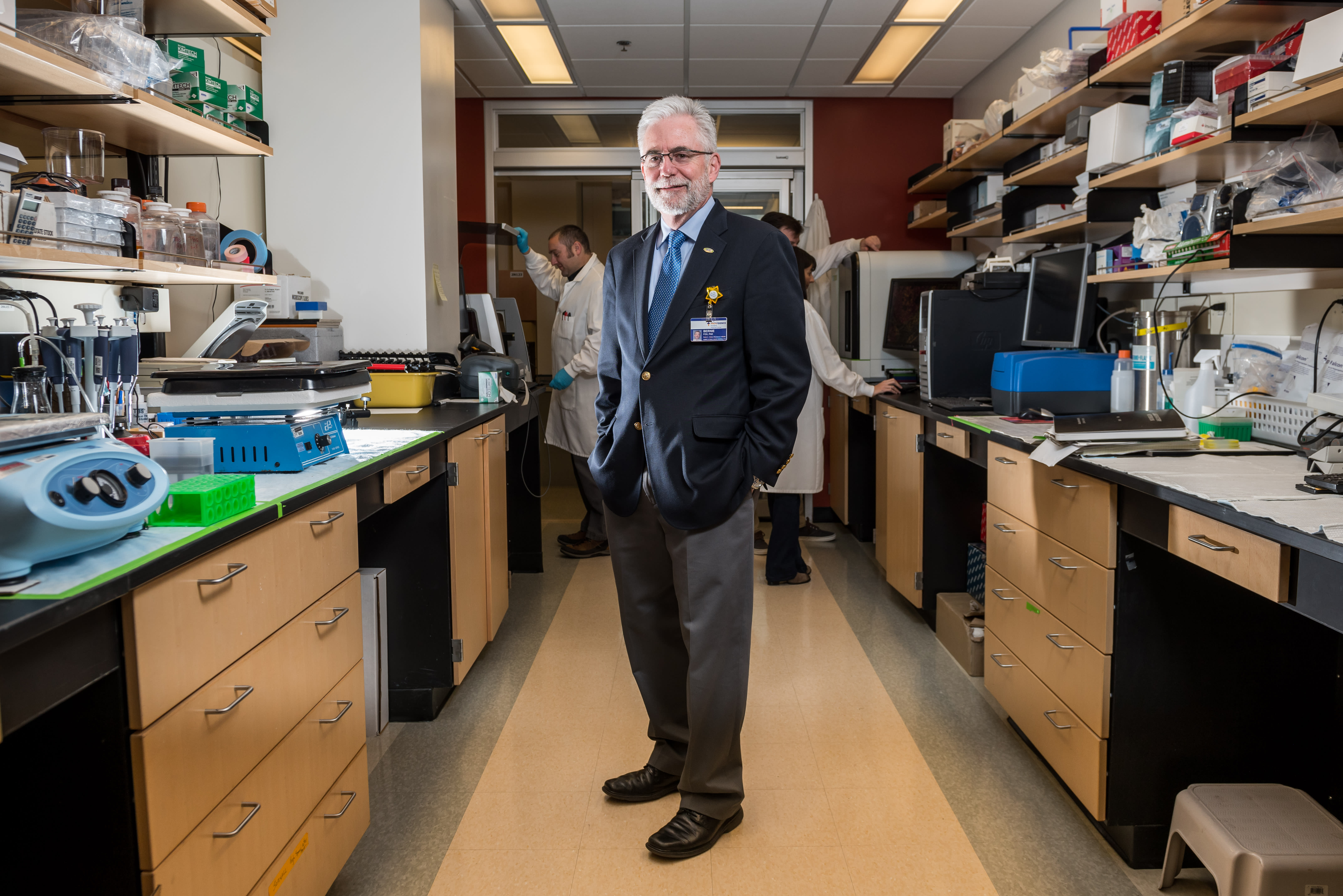Understanding PTSD: A guide to support and care

[4 MIN READ]
In this article:
-
Posttraumatic stress disorder (PTSD) is a mental health disorder that occurs after someone experiences or watches a traumatic event.
-
Both firsthand and secondhand trauma can lead to PTSD if the aftereffects of the traumatic event last longer than a month.
-
Two licensed therapists at Providence explain PTSD and outline tips to help you support someone affected by this disorder.
Fear, anxiety and extreme distress are natural responses to a traumatic event. They alert your body’s fight or flight response, causing a hormone rush that heightens your awareness and makes you more alert. Most of the time, those feelings fade and ultimately disappear within a week or two.
For some people, however, the aftereffects of trauma may linger for months – or even years – causing them to have flashbacks and relive the event endlessly and avoid loved ones, places or items that trigger unpleasant memories. That’s when it’s considered posttraumatic stress disorder or PTSD.
We talked to licensed therapists Anna Nguyen, MA, LMFT, Program Manager of Behavioral Health and Primary Care Integration for Providence and Marie A. Fowler, MSW, LCSW, Behavioral Health Integration Manager for St. Mary High Desert Medical Group, to better understand PTSD and learn how to help someone who’s experiencing symptoms. Here’s what they shared.
What is PTSD?
PTSD is a mental health disorder caused by a traumatic experience or a series of traumatic events that lasts longer than a month.
“Posttraumatic stress disorder is usually characterized by timeframe. If it's within a month of the event and you’re experiencing these symptoms, it's usually an acute stress disorder. If your symptoms last more than a month, it's considered PTSD,” says Nguyen.
Causes
It can be difficult to pinpoint the cause of PTSD. Researchers have not yet determined why some people get PTSD and others are able to bounce back after a traumatic event with few repercussions to their mental health. The type of traumatic experience does not always indicate its severity.
There are two main types of trauma: firsthand and secondhand.
“Firsthand trauma affects the person experiencing the activating event,” says Nguyen. “For example, the person driving the car that's in an accident is experiencing firsthand trauma. Secondhand trauma could affect witnesses and bystanders of the traumatic event. They're not experiencing it first-person, but it's still very traumatic for them to watch.”
“Firsthand trauma and secondary trauma can be just as powerful as one another,” explains Nguyen. “Whether you’re watching or participating, it really depends on how your brain is processing what’s happening and how you’re taking it all in. For someone who is watching the trauma, it can be so traumatic they're thinking about it for days, getting nightmares or having recurring flashbacks that keep on popping up.”
Calling something a traumatic event doesn’t always indicate a momentous event occurred in someone’s life. Trauma can come from multiple sources.
“Mental health professionals define trauma as anything that overwhelms you or anything that you didn't have the resources to handle at that time,” says Fowler. “We often refer to “Big T” Trauma and “little t” trauma. Big T Trauma includes things like war, violent crime or a serious car accident. Little t trauma refers to the constant insidious traumas that can happen to us like emotional neglect, homelessness or parental divorce.”
Who does it affect?
Anyone can develop PTSD after they go through a traumatic event. Still, some circumstances can increase the possibility of difficulty coping with the aftermath of what you’ve been through.
According to the American Academy of Family Physicians, you may be at greater risk of PTSD if you are a:
- Veteran, soldier, victim of war or prisoner of war.
- Survivor of domestic violence or rape.
- Survivor of physical, verbal or sexual assault or abuse.
- Survivor of a traumatic, unexpected event.
- Survivor of a natural disaster, such as an earthquake, fire or hurricane.
- Front-line worker, such as care provider, police officer, EMT or firefighter.
- Victim of bullying.
- Diagnosed with a terminal illness, depression, anxiety or a mental disorder.
Recognizing the warning signs
Common symptoms of PTSD include:
- Repeated flashbacks or nightmares that cause you to relive the activating event.
- Avoiding situations, people or locations that remind you of what happened.
- Overwhelming guilt, anger or shame about yourself and your response to the trauma.
- Loss of interest in daily life and things you previously enjoyed.
- Feeling emotionally numb or detached and isolated from others, including family members and close friends.
- Difficulty sleeping.
- Extreme anxiety or depression
Approaching someone who has PTSD
If someone you care about has PTSD, the most helpful thing you can do to show support is to talk openly and without judgment about what they're going through.
“Speak as candidly as you can and be open about your own mental health struggles. That's how it becomes normalized,” says Fowler. “If you share with a family member or a friend that you had a hard day or you're feeling depressed, they are more likely to open up with their own mental health struggles.”
“Normalize the conversation at home," says Nguyen. “Sometimes, even saying something as basic as ‘I'm noticing something's different. I don't know what, but I really care about you. And I'm here to talk whenever you want to,’ can be a powerful message.
Dos and don’ts
According to the National Center for PTSD, the following tips can help you talk to someone about their symptoms and how they’re affecting their life.
Do:
- Express support or concern and let them know you’d like to help if they’re having mental health problems.
- Schedule a time to talk to give your loved one time to prepare mentally for the conversation.
- Suggest getting help from a mental health professional.
Don’t:
- Try to resolve every issue at once. It can feel overwhelming for your loved one and make them hesitant to continue the conversation at a different time.
- Demand someone seek help. It can backfire and make them less likely to seek assistance.
- Use threatening language or issue ultimatums.
Getting professional help
When is it time to talk to your provider about treatment options?
“It's never too early or too late to get help,” says Nguyen. The earlier, the better because it means you’ll suffer less. You’ll learn brand new skills sooner rather than later and learn how to identify and cope with your emotions.”
"It's very similar to going to the dentist when you feel the slightest toothache,” she adds. “If you have an infection and it's worsening, it's going to require a lot more intervention from your provider. But if you have the slightest toothache and you go to the dentist, they can do a lot of things to prevent it from getting worse. It’s very similar with mental health.”
“Anytime you feel like it's impacting your sense of self or who you are, it could be a sign you need help," says Fowler. If it's affecting your ability to function and you're having interpersonal relationship problems, those are all signs that maybe you need to go talk to a mental health professional."
If you answer “yes” to at least three of the following questions, the U.S. Department of Health and Human Services recommends you contact your doctor, nurse or other health care provider:
- Have you had nightmares about the event or been unable to stop thinking about it, even when you don’t want to?
- Do you go out of your way to avoid situations, locations or people that remind you of the traumatic event?
- Are you easily startled, constantly on guard or anxious most of the time?
- Do you feel numb or detached from others, your surroundings or activities you once enjoyed?
“I always say if we're experiencing emotions, like PTSD or anxiety or panic, and we don't know what it is, it's really scary. And to do that alone is really tough. It’s okay to ask for help,” says Fowler.
Resources
Here are some resources that may be helpful for you or others experiencing PTSD:
National Center for PTSD
The world's leading research and educational center of excellence on PTSD and traumatic stress.
Substance Abuse and Mental Health Services Administration (SAMHSA) National Helpline, 1-800-662-HELP (4357) or TTY: 1-800-487-4889
Confidential, free information is available 24/7, every day of the year, in both English and Spanish. This service supports individuals and family members dealing with mental health and substance use disorders by providing referrals to local treatment centers, providers, support groups and community-based organizations.
National Suicide Prevention Lifeline, 1-800-273-TALK (8255)
Available any time, day or night, 365 days a year. This toll-free PTSD helpline has trained volunteers standing by to provide crisis intervention, offer support for people in distress and give information and referrals to people with PTSD and their loved ones.
Veterans Crisis Line, (800) 273-TALK (8255) and press “1”
This toll-free hotline sponsored by the U.S. Department of Veterans Affairs is available for veterans and their loved ones. You can also send a text message to 838255 to receive confidential, free support and referrals.
Crisis Text Line, Text HOME to 741741
This service is available 24/7 and provides free crisis support and information via text.
National Hopeline Network, 1-800-442-HOPE (4673)
Available 365 days a year, this toll-free hotline is staffed by volunteers specially trained in crisis intervention. It provides support, information and referrals to people in need. You can also access services via chat by pressing the "Chat Now" button on its website.
PTSD Foundation of America, 877-717-PTSD (7873). Providing referrals, information and helpful resources to veterans and their families. This toll-free hotline is available 24/7.
Lifeline for Vets: (888) 777-4443
Also geared toward veterans and their families, this toll-free PTSD helpline provides crisis intervention, referrals, and information.
Contributing caregivers
Marie Fowler, LCSW, and Anna Nguyen, LMFT, are behavioral therapists and program managers for Behavioral Health & Primary Care Integration at Providence.
Find a doctor
If you are looking for a licensed therapist to help you overcome the aftereffects of a traumatic event, you can search for one who’s right for you in our provider directory. Through Providence Express Care Virtual, you can access a full range of healthcare services and get the care you need.
Download the Providence app
We’re with you, wherever you are. Make Providence’s app your personalized connection to your health. Schedule appointments, conduct virtual visits, message your doctor, view your health records and more. Learn more and download the app.
Related resources
How to prioritize your mental health
Dealing with PTSD: A real-life story from Bellator fighter Cat Zingano
Offering Intensive Care for Mental Health
This information is not intended as a substitute for professional medical care. Always follow your healthcare professional's instructions.


